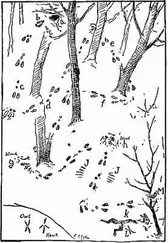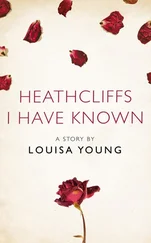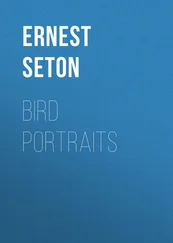Ernest Seton - Wild Animals I Have Known
Здесь есть возможность читать онлайн «Ernest Seton - Wild Animals I Have Known» весь текст электронной книги совершенно бесплатно (целиком полную версию без сокращений). В некоторых случаях можно слушать аудио, скачать через торрент в формате fb2 и присутствует краткое содержание. Год выпуска: 2001, Жанр: Природа и животные, на английском языке. Описание произведения, (предисловие) а так же отзывы посетителей доступны на портале библиотеки ЛибКат.
- Название:Wild Animals I Have Known
- Автор:
- Жанр:
- Год:2001
- ISBN:нет данных
- Рейтинг книги:5 / 5. Голосов: 1
-
Избранное:Добавить в избранное
- Отзывы:
-
Ваша оценка:
- 100
- 1
- 2
- 3
- 4
- 5
Wild Animals I Have Known: краткое содержание, описание и аннотация
Предлагаем к чтению аннотацию, описание, краткое содержание или предисловие (зависит от того, что написал сам автор книги «Wild Animals I Have Known»). Если вы не нашли необходимую информацию о книге — напишите в комментариях, мы постараемся отыскать её.
Wild Animals I Have Known — читать онлайн бесплатно полную книгу (весь текст) целиком
Ниже представлен текст книги, разбитый по страницам. Система сохранения места последней прочитанной страницы, позволяет с удобством читать онлайн бесплатно книгу «Wild Animals I Have Known», без необходимости каждый раз заново искать на чём Вы остановились. Поставьте закладку, и сможете в любой момент перейти на страницу, на которой закончили чтение.
Интервал:
Закладка:
Next day I was at the same place, and as the crows came near I raised my walking stick and pointed it at them. The old fellow at once cried out 'Danger,' and rose fifty feet higher than before. Seeing that it was not a gun, he ventured to fly over. But on the third day I took with me a gun, and at once he cried out, 'Great danger—a gun.' His lieutenant repeated the cry, and every crow in the troop began to tower and scatter from the rest, till they were far above gun shot, and so passed safely over, coming down again to the shelter of the valley when well beyond reach. Another time, as the long, straggling troop came down the valley, a red-tailed hawk alighted on a tree close by their intended route. The leader cried out, 'Hawk, hawk,' and stayed his flight, as did each crow on nearing him, until all were massed in a solid body. Then, no longer fearing the hawk, they passed on. But a quarter of a mile farther on a man with a gun appeared below, and the cry, 'Great danger—a gun, a—gun; scatter fur your lives,' at once caused them to scatter widely and tower till far beyond range. Many others of his words of command I learned in the course of my long acquaintance, and found that sometimes a very little difference in the sound makes a very great difference in meaning. Thus while No. 5 means hawk, or any large, dangerous bird, this means 'wheel around,' evidently a combination of No. 5, whose root idea is danger, and of No. 4, whose root idea is retreat, and this again is a mere 'good day,' to a far away comrade. This is usually addressed to the ranks and means 'attention.'
Early in April there began to be great doings among the crows. Some new cause of excitement seemed to have come on them. They spent half the day among the pines, instead of foraging from dawn till dark. Pairs and trios might be seen chasing each other, and from time to time they showed off in various feats of flight. A favorite sport was to dart down suddenly from a great height toward some perching crow, and just before touching it to turn at a hairbreadth and rebound in the air so fast that the wings of the swooper whirred with a sound like distant thunder. Sometimes one crow would lower his head, raise every feather, and coming close to another would gurgle out a long note like. What did it all mean? I soon learned. They were making love and pairing off. The males were showing off their wing powers and their voices to the lady crows. And they must have been highly appreciated, for by the middle of April all had mated and had scattered over the country for their honeymoon, leaving the sombre old pines of Castle Frank deserted and silent.
II
The Sugar Loaf hill stands alone in the Don Valley. It is still covered with woods that join with those of Castle Frank, a quarter of a mile off in the woods, between the two hills, is a pine-tree in whose top is a deserted hawk's nest. Every Toronto school-boy knows the nest, and, excepting that I had once shot a black squirrel on its edge, no one had ever seen a sign of life about it. There it was year after year, ragged and old, and falling to pieces. Yet, strange to tell, in all that time it never did drop to pieces, like other old nests.
One morning in May I was out at gray dawn, and stealing gently through the woods, whose dead leaves were so wet that no rustle was made. I chanced to pass under the old nest, and was surprised to see a black tail sticking over the edge. I struck the tree a smart blow, off flew a crow, and the secret was out. I had long suspected that a pair of crows nested each year about the pines, but now I realized that it was Silverspot and his wife. The old nest was theirs, and they were too wise to give it an air of spring-cleaning and housekeeping each year. Here they had nested for long, though guns in the hands of men and boys hungry to shoot crows were carried under their home every day. I never surprised the old fellow again, though I several times saw him through my telescope.
One day while watching I saw a crow crossing the Don Valley with something white in his beak. He flew to the mouth of the Rosedale Brook, then took a short flight to the Beaver Elm. There he dropped the white object, and looking about gave inc a chance to recognize my old friend Silverspot. After a minute he picked up the white thing—a shell—and walked over past the spring, and here, among the docks and the skunk-cabbages, he unearthed a pile of shells and other white, shiny things. He spread them out in the sun, turned them over, turned them one by one in his beak, dropped them, nestled on them as though they were eggs, toyed with them and gloated over them like a miser. This was his hobby, his weakness. He could not have explained why he enjoyed them, any more than a boy can explain why he collects postage-stamps, or a girl why she prefers pearls to rubies; but his pleasure in them was very real, and after half an hour he covered them all, including the new one, with earth and leaves, and flew off. I went at once to the spot and examined the hoard; there was about a hatfull in all, chiefly white pebbles, clam-shells, and some bits of tin, but there was also the handle of a china cup, which must have been the gem of the collection. That was the last time I saw them. Silverspot knew that I had found his treasures, and he removed them at once; where, I never knew.
During the space that I watched him so closely he had many little adventures and escapes. He was once severely handled by a sparrowhawk, and often he was chased and worried by kingbirds. Not that these did him much harm, but they were such noisy pests that he avoided their company as quickly as possible, just as a grown man avoids a conflict with a noisy and impudent small boy. He had some cruel tricks, too. He had a way of going the round of the small birds' nests each morning to eat the new laid eggs, as regularly as a doctor visiting his patients. But we must not judge him for that, as it is just what we ourselves do to the hens in the barnyard.
His quickness of wit was often shown. One day I saw him flying down the ravine with a large piece of bread in his bill. The stream below him was at this time being bricked over as a sewer. There was one part of two hundred yards quite finished, and, as he flew over the open water just. above this, the bread fell from his bill, and was swept by the current out of sight into the tunnel. He flew down and peered vainly into the dark cavern, then, acting upon a happy thought, he flew to the downstream end of the tunnel, and awaiting the reappearance of the floating bread, as it was swept onward by the current, he seized and bore it off in triumph.
Silverspot was a crow of the world. He was truly a successful crow. He lived in a region that, though full of dangers, abounded with food. In the old, unrepaired nest lie raised a brood each year with his wife, whom, by the way, I never could distinguish, and when the crows again gathered together he was their acknowledged chief.
The reassembling takes place about the end of June—the young crows with their bob-tails, soft wings, and falsetto voices are brought by their parents, whom they nearly equal in size, and introduced to society at the old pine woods, a woods that is at once their fortress and college. Here they find security in numbers and in lofty yet sheltered perches, and here they begin their schooling and are taught all the secrets of success in crow life, and in crow life the least failure does not simply mean begin again. It means death.
The first week or two after their arrival is spent by the young ones in getting acquainted, for each crow must know personally all the others in the band. Their parents meanwhile have time to rest a little after the work of raising them, for now the youngsters are able to feed themselves and roost on a branch in a row, just like big folks.
In a week or two the moulting season comes. At this time the old crows are usually irritable and nervous, but it does not stop them from beginning to drill the youngsters, who, of course, do not much enjoy the punishment and nagging they get so soon after they have been mamma's own darlings. But it is all for their good, as the old lady said when she skinned the eels, and old Silverspot is an excellent teacher. Sometimes he seems to make a speech to them. What he says I cannot guess, but judging by the way they receive it, it must be extremely witty. Each morning there is a company drill, for the young ones naturally drop into two or three squads according to their age and strength. The rest of the day they forage with their parents.
Читать дальшеИнтервал:
Закладка:
Похожие книги на «Wild Animals I Have Known»
Представляем Вашему вниманию похожие книги на «Wild Animals I Have Known» списком для выбора. Мы отобрали схожую по названию и смыслу литературу в надежде предоставить читателям больше вариантов отыскать новые, интересные, ещё непрочитанные произведения.
Обсуждение, отзывы о книге «Wild Animals I Have Known» и просто собственные мнения читателей. Оставьте ваши комментарии, напишите, что Вы думаете о произведении, его смысле или главных героях. Укажите что конкретно понравилось, а что нет, и почему Вы так считаете.





